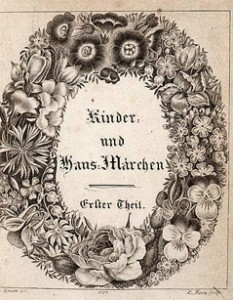I’ve been reading (wrestling?) with some essays by German thinker and translator Walter Benjamin lately. Many of his essays relate directly to the work we do here at Archipelago Books, so over the next few Tuesdays, I’ll be pulling some relevant sections from Illuminations, translated into English by Harry Zohn, and attempting to digest them. Feel free to comment with your own thoughts, rants, professions, or raves.
To begin, here’s a passage on fairy tales from “The Storyteller,” which illuminates a few aspects of our recent Selected Tales of the Brothers Grimm, translated by Peter Wortsman:
“And they lived happily ever after,” says the fairy tale. The fairy tale, which to this day is the first tutor of children because it was once the first tutor of mankind, secretly lives on in the story. The first true storyteller is, and will continue to be, the teller of fairy tales. Whenever good counsel was at a premium, the fairy tale had it, and where the need was greatest, its aid was nearest. This need was the need created by the myth. The fairy tale tells us of the earliest arrangements that mankind made to shake off the nightmare which the myth had placed upon its chest. In the figure of the fool it shows us how mankind “acts dumb” toward the myth; in the figure of the man who set out to learn what fear is it shows us that the things we are afraid of can be seen through; in the figure of the wiseacre it shows us that the questions posed by the myth are simple-minded, like the riddle of the Sphinx; in the shape of the animals which come to the aid of the child in the fairy tale it shows that nature not only is subservient to the myth, but much prefers to be aligned with man. The wisest thing—so the fairy tale taught mankind in olden times, and teaches children to this day—is to meet the forces of the mythical world with cunning and with high spirits. (This is how the fairy tale polarized Mut, courage, dividing it dialectically into Untermut, that is, cunning, and Übermut, high spirits.) The liberating magic which the fairy tale has at its disposal does not bring nature into play in a mythical way, but points to its complicity with liberated man. A mature man feels this complicity only occasionally, that is, when he is happy; but the child first meets it in fairy tales, and it makes him happy.
I’m interested in this idea of a forked courage – both cunning and high spirits in the face of adversity. The heroes and heroines as the Brothers Grimm portrayed them have this three-dimensionality.
Maybe this is why many of the Disney versions of folk characters seem flat to me: they lack this two-pronged personality, verve and wit. Snow White certainly has Übermut – but cunning? Cunning belongs solely to the Witch.
I’m not sure what Belle was reading, but I bet it wasn’t Benjamin.

